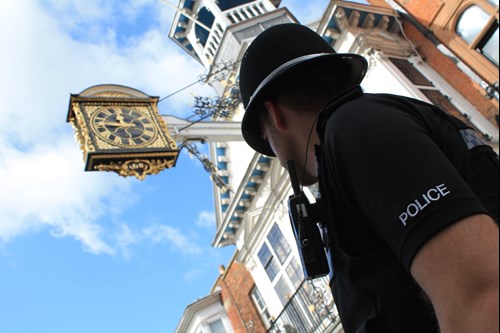Rest day backlog is a 'threat to officer health'
17 April 2018

Officers in England and Wales are owed almost 250,000 rest days – creating a ‘danger to the public’ and a risk to officer wellbeing, according to the Police Federation of England and Wales.
A new report compiled by The Press Association revealed the figures as a ‘snapshot’ of the situation as of September last year.
Terrorist attacks and incidents such as the Grenfell Tower disaster have been blamed for the cancellation of rest days at the Met although other Federations have said cuts and the fact that police forces are having to do more with less is a factor.
Taking the time off they are owed is vital for public safety and for officer health and wellbeing says Police Federation of England and Wales Chair Calum McLeod.
He believes a lack of resource means forces are not always able to honour officers’ time off.
“We just don’t have the resources to meet the demands of the public,” he said.
“Whether that’s an event, a terrorist incident or, from the police officer’s point of view, of them actually getting their rest days.
“Rest days are being banked and that’s a dangerous situation for the public and policing.
“It needs to be addressed because people are getting fatigued.”
Re-rostered rest days are accrued when officers have their original days off cancelled.
This might happen in response to operational demands, staff sickness or when major incidents require additional police resources.
The PFEW has also highlighted concerns around members being unable to claim overtime, as well as those officers who retire with rest days owed having to battle forces for payments due to them.
Calum says the system should be flexible but not at the expense of officers.
“The country has recently experienced a number of major incidents such as the terrorist attacks in London and Manchester, the Grenfell fire, the nerve agent poisoning in Salisbury and this month we have seen an increased police presence on the streets of the capital in response to the spike in serious violent offences.
“All of these events, and many others besides, mean officers have had to work longer hours or work their rest day.
“Every police officer accepts that this is part of the job and when they are called they will respond.
“But we have to recognise that these officers are missing out on valuable time away from the frontline and that can have very serious consequences on their health and their personal lives.
“If officers aren’t feeling refreshed and having rests between their shift patterns, then the situation of their mental health is exasperated,” he said.
A recent PFEW survey showed that eight out of 10 officers reported feeling anxious because of their work.
“That is a very startling figure when you look at the amount of police officers in the UK,” Calum added.
“They need to recuperate to provide the best possible service to the public.”














